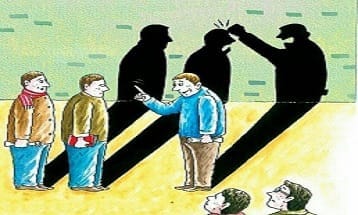
Blog
advice

What is Internal Resistance and What Are Its Consequences? When Do People Experience Internal Resistance?
Humans exhibit internal resistance to advice because the effectiveness of recommendations, counsel, and guidance depends on various factors.
One of the factors influencing the impact of advice is who delivers it, when, and in what context.
Advice can help prevent wasting time and life by transferring useful information. We should benefit from guidance and avoid reinventing the wheel.
Regardless of whether advice is good or bad, people generally do not like to hear others’ advice.
Everyone feels uncomfortable when being advised, even if the advisor is logical and experienced.
This unpleasant feeling toward being advised is called psychological resistance—a defensive response of the brain to protect one’s freedom. The brain values freedom, creativity, and initiative in shaping life, and advice is perceived as a limitation or loss of that freedom.
When advice is given, the brain’s alert mechanism is activated, signaling that one’s autonomy is at risk.
By advising someone, you unintentionally prepare their brain to defend itself, thus risking the destruction of your relationship, as the individual feels their dignity and independence are threatened.
This phenomenon is observable in children who, when forbidden from doing something, become more eager to do it; this is also true for adults.
What is important is that when giving advice, you should respect the individual’s freedom as much as possible so as not to undermine their power of choice and will. Secondly, the language used should convey respect to the other person.
Another reason people ignore advice is due to weakened self-confidence, which causes internal resistance.
According to a 2017 study, in 80% of cases, advice is perceived as criticism, which triggers a sense of superiority in the advisor, something humans naturally reject, causing them to become defensive.
The desire to give advice often stems from the sense of power and confidence it gives the advisor.
Research on people who have experienced failure shows that they are usually aware of the mistakes they made, and failure is not due to ignorance. A person who has failed was once an advisor to others and had a mindset; their failure does not mean they are foolish.
Most of the time, people already know many things, so it is unnecessary to imply ignorance, stupidity, or illiteracy to one another. Ignoring these points causes a defensive attitude and internal conflict that drains a person’s energy.
Often, the advice we give others is actually advice we give ourselves, but since we don’t want to upset ourselves, we direct it to others.
By advising others, we project onto them the issues we regret about ourselves; in other words, we reprimand ourselves under the guise of advising others.
Sometimes, parents’ advice to their children represents their own unfulfilled desires and unlived lives.
If such advice touches on a person’s core beliefs, life roots, or life path, it becomes very repulsive and intolerable because the individual has invested a long time in these areas. Unwanted advice puts immense pressure on the person.
There is also a close connection between feelings of inferiority and being advised; those who intend to belittle others tend to give more advice.
Even if the advisor does not intend to belittle, they inevitably transmit this feeling to the other person.
برای مشاوره رایگان و رزرو وقت (یا اگر تماس گرفتید و قادر به پاسخگویی نبودیم) شماره تماس خود را وارد کنید. ما به زودی با شما تماس می گیریم!



